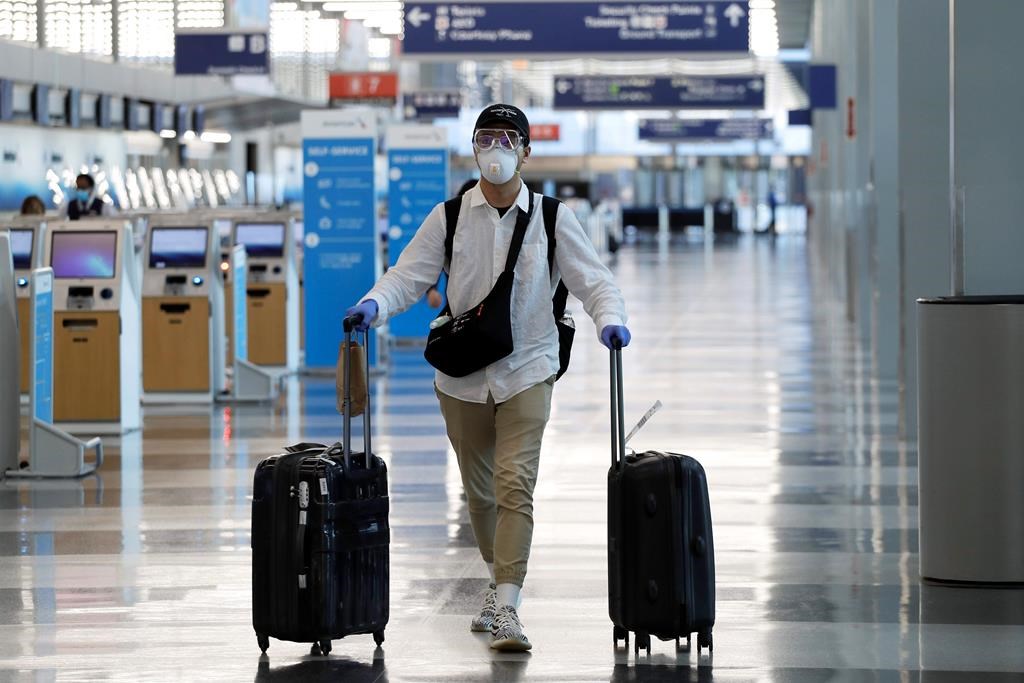A foreigner can stay in the Philippines without a visa for up to 30 days if they are a national of a country included visa waiver program.

Introduction
Importance of Visa Regulations
Visa regulations play a crucial role in controlling and monitoring international travel. These laws ensure that travelers comply with the requirements set by the host country, including the Philippines. Let’s delve into why these regulations are so important.
- Ensuring Security: By tracking who enters and leaves the country, the Philippines can ensure the safety of its citizens and visitors. This information helps in the prevention of illegal activities and the management of potential security threats.
- Protecting Local Economy and Job Market: Visa regulations control the influx of foreign workers. This helps in protecting the local job market and ensuring that foreign labor does not negatively affect opportunities for Philippine citizens.
- Facilitating Tourism and Business: Clear visa guidelines encourage tourism and international business. For tourists, understanding the length of stay allowed without a visa and the procedures for obtaining one makes travel planning easier. You can find detailed information on visa requirements for the Philippines on the official embassy website or the Wikipedia page for Visa policy in the Philippines.
- Humanitarian Considerations: Visa regulations also have provisions for refugees and those in need of humanitarian aid. Special visas and exceptions in the Philippines allow for the shelter and assistance of those in dire circumstances.
- Building International Relations: Consistent and fair visa policies aid in fostering positive relationships between the Philippines and other nations. They ensure reciprocity and facilitate international cooperation and diplomacy.
General Visa Information for Foreigners
Visa-Free Countries List
The Philippines offers visa-free entry to nationals of several countries, allowing them to stay for a specific period without needing to obtain a visa beforehand. Below is a list of some of the visa-free countries:
- United States: 30 days
- United Kingdom: 30 days
- Australia: 30 days
- Canada: 30 days
- Most European Union Countries: 30 days
- Singapore: 30 days
- South Korea: 30 days
Types of Visas in the Philippines
The Philippines offers different types of visas to meet various needs. Below is a table outlining some of the main visa categories:
| Type of Visa | Purpose | Duration |
|---|---|---|
| Tourist Visa | Vacation, leisure | Up to 59 days |
| Business Visa | Business-related activities | Depends on activity |
| Student Visa | Educational purposes | As per course duration |
| Employment Visa | Work | Contract-based |
| Retirement Visa | Retirement | Indefinite |
Application Process
The visa application process in the Philippines varies depending on the type of visa but generally follows these steps:
- Determine the Type of Visa Needed: Check the requirements for the specific visa type you need. Requirements can vary based on nationality and purpose of travel.
- Complete the Application Form: This can be found on the website of the nearest Philippine Embassy or Consulate.
- Gather Required Documents: This typically includes passport, photographs, proof of financial means, and other documents depending on the visa type.
- Pay the Application Fee: Fees vary depending on the visa type and nationality.
- Schedule an Appointment: Some visas require an in-person interview at the embassy or consulate.
- Submit the Application: Send the completed application and required documents either online or in person, as directed.
- Wait for Processing: Processing times can vary.
- Collect the Visa: Once approved, collect the visa from the specified location or receive it by mail.
- Adhere to the Visa Conditions: Ensure to follow the rules and regulations stipulated for your visa during your stay in the Philippines.
Overstaying Penalties and Consequences
Overstaying Fees
Here’s a general structure:
- First day: $25
- Additional days: $20 per day
- Monthly renewal fee for long overstays: $50
Legal Implications
Overstaying in the Philippines is not merely a matter of paying fines. There can be serious legal consequences:
- Detention: In severe cases, overstaying can lead to detention by immigration authorities.
- Legal Proceedings: Overstayers may find themselves involved in legal proceedings that can be both time-consuming and costly.
- Deportation: In some instances, overstayers may be deported to their home country at their own expense, and the details of the deportation may be shared with international agencies.
- Blacklisting: Being blacklisted means that the individual will not be permitted to return to the Philippines for a specified period, or in some cases, indefinitely.
Impact on Future Travel
The consequences of overstaying extend beyond the immediate legal implications and can affect future travel plans:
- Difficulty in Obtaining Visas: Overstaying can be recorded and shared with other countries’ immigration services. This can make obtaining visas in the future more challenging, not only for the Philippines but for other countries as well.
- Damage to Reputation: An overstay can create a lasting impression on a person’s travel record, making them appear less trustworthy to immigration authorities worldwide.
- Increased Scrutiny: Overstayers might experience more thorough scrutiny in subsequent travel, leading to delays and additional questioning at immigration checkpoints.

Special Cases and Exceptions
Diplomatic Passports
Holders of diplomatic passports often receive special treatment under international agreements and conventions. In the Philippines, these exceptions can include:
- Visa-Free Entry: Many countries have bilateral agreements with the Philippines allowing diplomatic passport holders to enter without a visa for short stays.
- Expedited Processing: If a visa is required, the application process is often expedited, with reduced or waived fees.
- Special Privileges: There may be additional privileges at immigration checkpoints, such as access to diplomatic lines, making entry and exit more efficient..
Special Permits
In some situations, special permits can be obtained to allow entry or extended stay in the Philippines. These include:
- Special Work Permits: For individuals involved in specialized work projects, temporary work permits may be granted.
- Special Resident Permits: These can be given under exceptional circumstances to foreigners, allowing them to reside in the Philippines for a specific period.
- Special Study Permits: For short courses and non-degree programs, special study permits may be issued.
Special permits often require detailed documentation and justification, and the exact requirements can vary widely depending on the nature of the special permit. It is advisable to consult directly with the Philippine Bureau of Immigration or the relevant government department.
Humanitarian Grounds
The Philippines recognizes the need to provide assistance in humanitarian crises. Some exceptions on humanitarian grounds include:
- Refugee Status: The Philippines adheres to international guidelines on refugees and may grant visas to individuals fleeing persecution or conflict in their home country.
- Temporary Shelter: During natural disasters or conflicts, temporary shelter and visa exemptions might be granted on humanitarian grounds.
- Medical Emergencies: Visas and extensions can be provided quickly in the case of medical emergencies involving foreign nationals.
Living in the Philippines Long-Term
Long-Term Visas
For those planning to stay in the Philippines for an extended period, long-term visas are available. Here are some of the options:
- Temporary Resident Visa: This visa is suitable for foreigners married to Philippine citizens, allowing them to stay in the country with their spouse.
- Extended Tourist Visa: Tourists can apply for an extension of their visa if they wish to stay in the Philippines longer.
- Student Visas: International students admitted to accredited educational institutions can apply for a long-term student visa.
Permanent Residency Options
Permanent residency allows a foreign national to reside indefinitely within the Philippines. The most common paths include:
- Marriage to a Filipino Citizen: Spouses of Filipino citizens may apply for permanent residency.
- Quota Visa: A limited number of quota visas are available each year to nationals from countries with reciprocal agreements with the Philippines.
- Special Resident Retiree’s Visa (SRRV): This option is available to retirees who meet specific financial and health-related criteria.
Investment and Retirement Options
The Philippines offers opportunities for foreign nationals looking to invest or retire in the country:
- Investment Visas: Foreign investors who commit to investing a substantial amount in approved sectors may be eligible for long-term visas.
- Special Resident Retiree’s Visa (SRRV): Designed for foreign nationals who wish to retire in the Philippines, the SRRV has various options depending on age, income, and investment.

Case Studies and Personal Experiences
Interviews with Foreign Travelers
Understanding the personal experiences of foreign travelers can provide valuable insights into the actual process and challenges of traveling to the Philippines. Here’s a summary of insights gathered from interviews:
Tourist Perspectives: Many tourists appreciate the ease of obtaining short-term visas, though some have faced challenges with understanding specific regulations and unexpected delays. Business Traveler Insights: Business travelers have emphasized the importance of compliance with visa regulations and the need for careful planning, especially when engaging in professional activities. Student Experiences: International students in the Philippines have praised the opportunities for cultural exchange but have noted that understanding visa requirements can be complex.
Real-life Overstaying Scenarios
Overstaying a visa in the Philippines can lead to serious consequences. Some real-life scenarios include:
Accidental Overstays: Some travelers have shared stories of accidental overstays due to misunderstandings of the visa expiration date, leading to fines and stressful experiences with immigration authorities. Deliberate Overstays: There are accounts of individuals who deliberately overstayed, hoping to extend their stay without official extensions. These stories often end with legal complications, hefty fines, and potential bans from reentering the Philippines.
Such scenarios highlight the importance of compliance with visa regulations and awareness of potential risks and challenges.
Lessons Learned
The shared experiences of foreign travelers offer lessons for future travelers, including:
Compliance Is Key: Following the rules and regulations is essential to avoid complications and potential legal problems. Plan Ahead: Understanding the visa process, including application, extension, and expiration dates, is vital for a stress-free stay. Seek Professional Advice if Needed: If unsure about specific requirements, consulting with the Philippine Bureau of Immigration or a legal professional can prevent misunderstandings and mistakes. Consider Cultural Differences: Understanding and respecting the local culture, customs, and laws is part of responsible international travel.